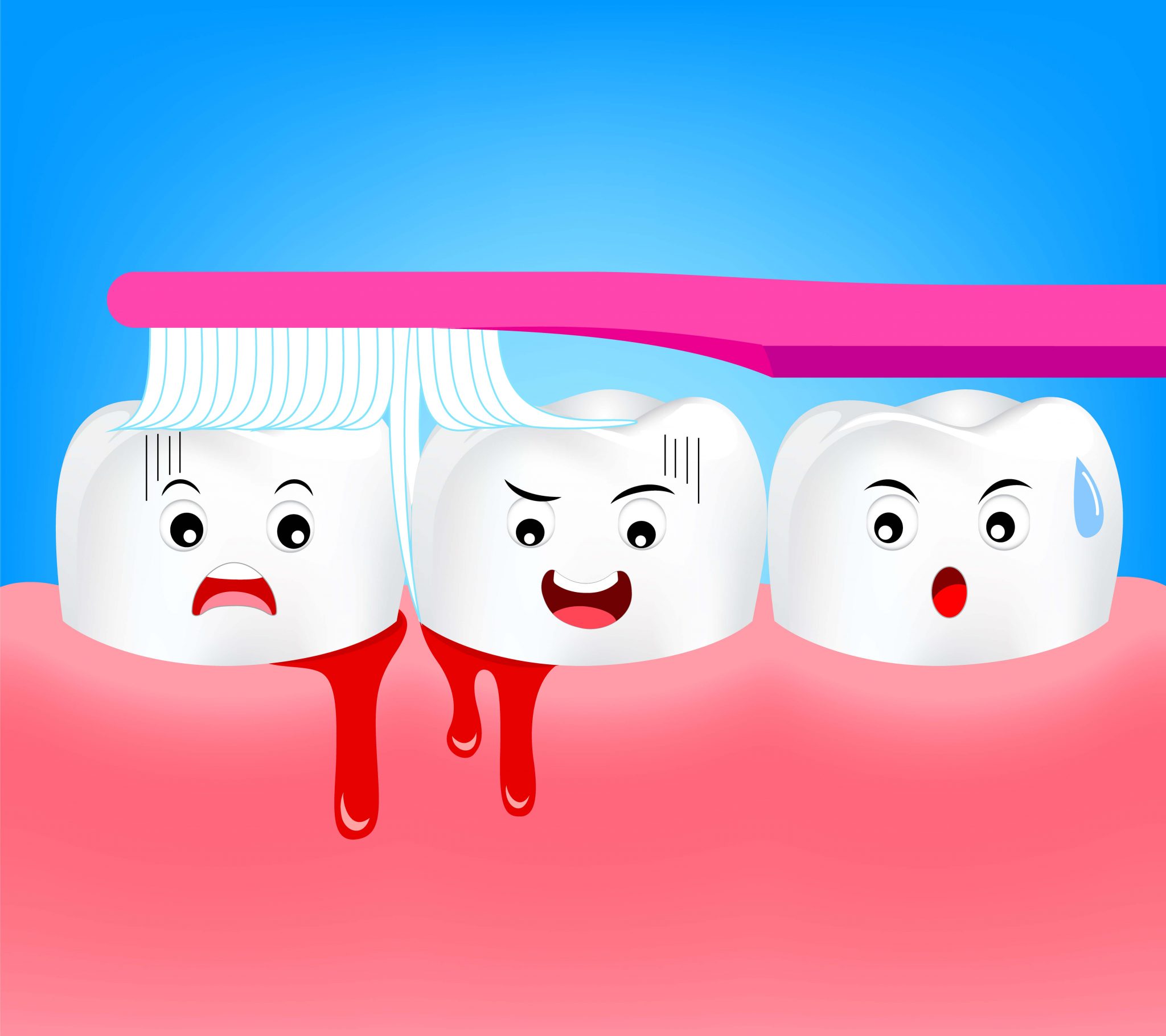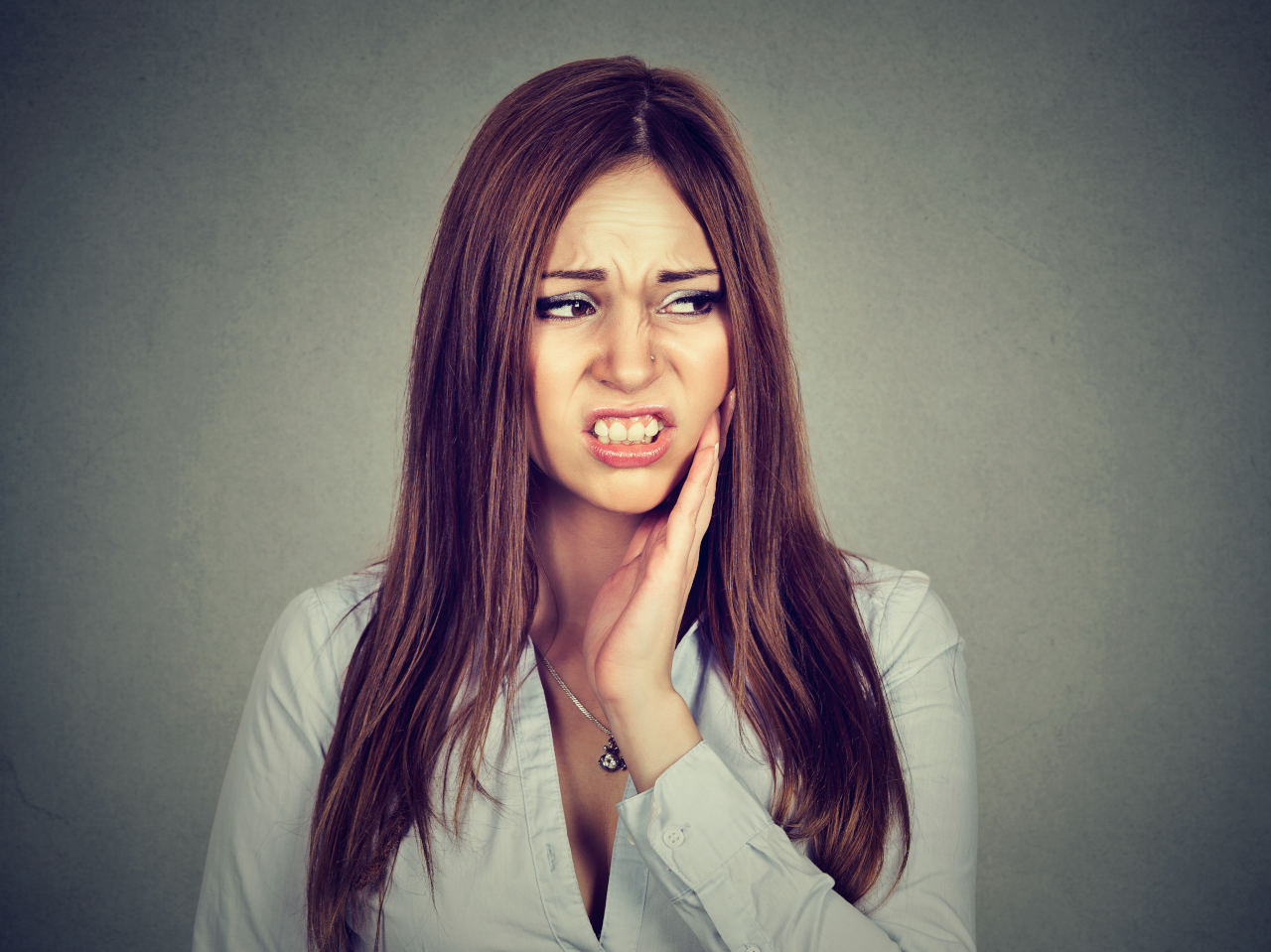Sensitive gums can have a negative impact on your daily life. Chewing, drinking, and talking can become painful and unpleasant. Hot and cold liquids and solids, as well as pressure, cause you to shudder in pain. The sensitivity of gum is not only uncomfortable, but it can also be a sign of a dental problem. Visit your dentist before it becomes a serious dental problem.
There are many reasons for gums sensitivity
 Hard Brushing
Hard Brushing
Excessive brushing will eliminate plaque, germs, and bacteria. It can also cause damage to the teeth and gums. Brushing the tooth too much can inadvertently scrape the tooth enamel. Your gums may be sensitive and inflamed because you accidentally brush your gums too much.
Using a hard toothbrush can make the problem worse. It is recommended to use a soft brush and change the brush every three months. Even the use of an abrasive toothpaste, such as baking soda or toothpaste with ingredients to scrub the plaque, can cause sensitivity to the gums by scratching and tearing the gums.
Hormones
Your body does many strange things when the hormones are ineffective. The most notable change is often the reduction of the body’s ability to fight bacteria and infections. The same hormonal change occurs in the tissue of the gums. During the hormonal change, the ability of the gums to interact properly with bacteria is reduced, increasing the risk of infection, inflammation, and sensitivity. Sensitive gums, for example, are a common symptom for pregnant women.
Food
Some foods can cause additional irritation of the gums. Foods that have a lot of acidity and sugar can cause irritation and hypersensitivity to the gums. Acidic and sugary foods and beverages can be eaten in enamel teeth and in soft rubber layers. The same foods and drinks can penetrate the sensitive, under the layers of the gums, causing them to irritate.
Gum Disease
The sensitivity of the gums is a characteristic symptom of gum disease. Gum disease involves infection of the tooth and surrounding gum tissue. While the damage and discomfort of gum disease can be reduced and reversed with proactive treatment, it can lead to tooth loss and bone loss in the jaw bone if left untreated. Gum disease is often preceded by gingivitis, a common and curable inflammation and sensitivity of the gums.
When caring for your gums, a change in the consumption of food and lifestyle is necessary to counteract the negative effects of habits. Avoid sweets, such as sweets, chocolates, and cakes, as well as acidic foods such as pickles, green mangoes, lemon, and tomatoes, as they can further aggravate gum problems.
Change the toothbrush regularly and choose only soft bristles. You can also try other toothpaste to see how the gums react. Finally, consider using mouthwash to kill the bacteria in your mouth.brush your teeth after every meal and do not forget about dental floss.


